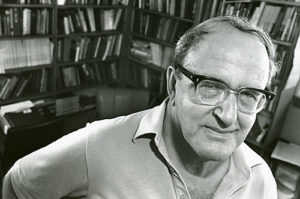Brion McClanahan, writing recently in Chronicles, on a topic that at first glance, seems tiresome, yet, it is relevant in ways many conservatives fail to understand. Of late there has been something of a resurgence in a narrative oft-repeated by Claremont types and other Straussian inspired, Jaffa influenced ‘conservatives’.
Strangely, inexplicitly, bizarrely, some of the most recent attacks have been directed at John C. Calhoun. One would think that Calhoun, having been interred and moved twice physically, and having been subjected to numerous years of character assassination, his enemies would console themselves that the great statesman and debater was truly dead and buried; and, almost thoroughly expunged from the public square. Why then continue to figuratively dig the man up to subject him to further inquisitions, incriminations, and accusations?
Because, Calhoun, it seems, has been written into the meta-narrative of a Straussian play that places him in a leading role as the inventor, originator and creator of the modern progressive movement. Mathew J. Peterson, Claremont V.P. of education, recently explained to me, “Claremont pioneered the research and scholarship revealing that the progressives explicitly rejected the founding and its principles and purposes.” This on the heels of an article by John Daniel Davidson entitled, ‘The Ghost of John C. Calhoun Haunts Today’s American Left’. Davidson’s argument is that Calhoun is in fact nearer aligned with the left and that his political views disagreed with the Founders. In a response article, I asked Davidson, which Framers he was referring to? Surely, he must have forgotten men like George Mason, Samuel Adams, Thomas Jefferson, Patrick Henry, Richard Henry Lee, Robert Yates, James Monroe, and many others.
But how could such an absurd notion as claiming Calhoun is singlehandedly responsible for inventing every ‘evil’ thing to ever visit itself upon America, from slavery to secession to progressivism, ever see the light of day? McClanahan provides a glimpse into how, it consists of a concerted, deliberate and sustained effort to rewrite history to portray ‘the party of Lincoln’ as the ultimate force for good in the universe. See his full article, ‘The Reinvention of Reconstruction’.
Most conservatives, long ago, accepted the key tenets of this narrative. Trump in his recent State of the Union address paid the habitual homage to Lincoln. As McClanahan states,
Many [conservatives] have also been deceived by a leftist narrative of Reconstruction as a flawed but ultimately virtuous project, and this has distorted their view of the entirety of American history.
He continues, “the Constitution ceased to be the anchor of the federal republic, and dangerous utopian ideals of ‘equality’, political centralization, and mass democracy” took hold. George Fletcher in, Our Secret Constitution: How Lincoln Redefined American Democracy states we essentially had a second constitution after 1865 based upon “organic nationhood, equality of all persons, and popular democracy” concepts different and opposed to those of our first constitution which promulgated “peoplehood as a voluntary association, individual freedom, and republicanism”. Fletcher is no enemy of Lincoln; he stated this change as a positive good. It is interesting to note, Fletcher is a lawyer, not a professional historian. His assertion that Lincoln fundamentally changed the nature and meaning of the Constitution contradicts the Straussian historical portrayal that this was always the intent. In their telling, Calhoun and others simply did not get it and those nasty anti-federalist among the Framers must have been in agreement with the grand plan. That is, If we accept the explanation of Davidson at The Federalist.
The impact of this meta-narrative, so well-woven into the minds and beliefs of ordinary Americans, has not been insignificant. As McClanahan notes,
“Conservatives would no longer be hidebound to defend traditional order or ‘well-constructed institutions,’ which were the terms Edmund Burke used to define the basis of traditional conservatism. […] and other social justice conservatives have adopted the imperial rhetoric of these foreign revolutionaries and have made their reformist agenda the so-called conservative cause of the 21st century.”
The denial of historical fact, that there were two views of the Framing, separate points of view that existed in debate and politics until 1850, is egregious enough. That this distortion has been intentional, systematic and almost total in its effect is shameful.
McClanahan concludes, “American conservatives must understand that by praising the Reconstruction Republican Party they are indirectly conceding the field. There can be no American conservative consensus while a progressive view of history that stretches back to the Civil War and Reconstruction is mislabeled and repackaged as ‘conservatism,’ and that is what these social justice conservatives have unwittingly accomplished.”
I would only add that this perversion of truth and provable facts was not as “unwitting” and Brion kindly and gently suggests. This has all been and is part of a concerted effort to press a very specific agenda going back to Leo Strauss and Henry Jaffa. The ‘conservatism’ this ideology prescribes is ultimately not conservatism at all. Tradition-minded, conservatively-inclined Americans will need to recapture authentic conservatism if we hope to maintain anything of what the Republic was intended to be.
This is no longer a ‘Southern’ issue to be denounced by a small group of dedicated ‘reactionary’ historians. The line from this Jaffite narrative to a centralized, ‘always benevolent’, unrestrained totalitarianism is as clear and present as the line from progressivism to authoritarian socialism. Neither fit within the original intent.
Connect with Barry on Twitter, @onlyBarryLClark.



Leave a comment